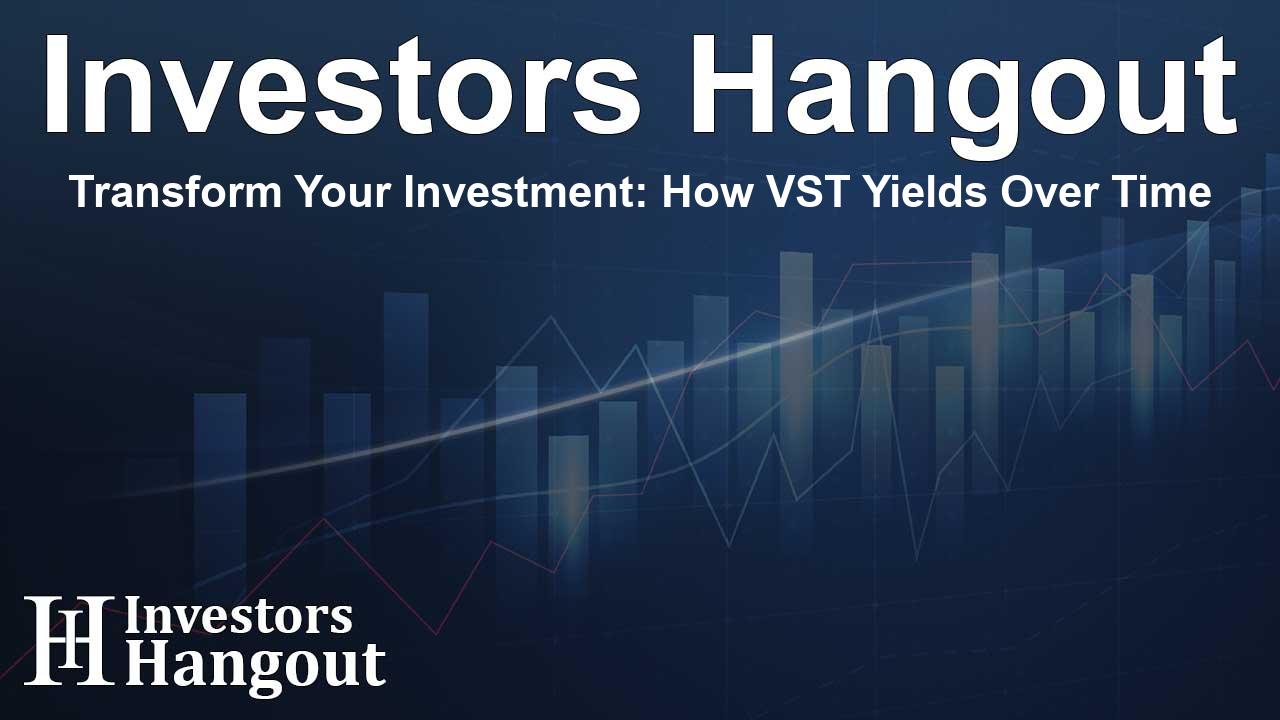Transform Your Investment: How VST Yields Over Time

Understanding Vistra's Investor Returns
Vistra (NYSE: VST) has shown significant growth over the past five years, outperforming the broader market with a remarkable annualized return of 61.32%, equating to a 47.19% increase yearly. With a market capitalization reaching approximately $69.70 billion, Vistra's financial health is impressive.
Investment Growth: A Simple Example
Let’s assume an investor decided to purchase $100 worth of VST stock five years ago. If they held onto that investment, it would now be valued at about $1,080.49. This valuation is based on the current price per share which stands at $205.70. This striking growth illustrates the potential rewards of long-term investing.
How Compounding Works
The principle of compounding is one of the most powerful aspects of investing. When you earn returns, those earnings start generating their own returns. In Vistra's case, starting with $100 illustrates how an initial small investment can lead to substantial growth over time. This reinforces the philosophy of staying invested with a long-term perspective.
Factors Influencing VST's Performance
Several factors contribute to the performance of Vistra. The company's strategic initiatives, market conditions, and the overall energy sector developments play critical roles. For instance, Vistra’s efforts in expanding its renewable energy portfolio have provided a competitive edge. as consumers increasingly seek sustainable energy solutions, companies like Vistra position themselves favorably for future growth.
Market Trends
The energy market is dynamic, undergoing significant shifts towards sustainability and renewable energy sources. Many investors are looking to align their investments with these trends. With Vistra focusing on sustainable energy, it has the potential to attract more investors, ensuring further growth.
Conclusion: A Lesson in Patience
Ultimately, investing in Vistra over the past five years showcases not only the company's growth but also the importance of patience in the investment landscape. This overview serves as a reminder that while market fluctuations can seem daunting, consistent growth can lead to impressive returns.
Frequently Asked Questions
What is Vistra's stock price currently?
The current stock price of Vistra (NYSE: VST) is approximately $205.70.
What was the investment return for VST stock over five years?
An initial investment of $100 in VST stock five years ago would be worth around $1,080.49 today.
How does compounding work in investing?
Compounding in investing means that the returns earned on an investment can generate additional returns, leading to exponential growth over time.
Why is Vistra's focus on renewable energy important?
Vistra's focus on renewable energy reflects market trends toward sustainability and can enhance its attractiveness to investors seeking eco-friendly options.
What factors contribute to Vistra's stock performance?
Vistra's stock performance is influenced by its strategic initiatives, market conditions, and advancements in the renewable energy sector.
About The Author
Contact Riley Hayes privately here. Or send an email with ATTN: Riley Hayes as the subject to contact@investorshangout.com.
About Investors Hangout
Investors Hangout is a leading online stock forum for financial discussion and learning, offering a wide range of free tools and resources. It draws in traders of all levels, who exchange market knowledge, investigate trading tactics, and keep an eye on industry developments in real time. Featuring financial articles, stock message boards, quotes, charts, company profiles, and live news updates. Through cooperative learning and a wealth of informational resources, it helps users from novices creating their first portfolios to experts honing their techniques. Join Investors Hangout today: https://investorshangout.com/
The content of this article is based on factual, publicly available information and does not represent legal, financial, or investment advice. Investors Hangout does not offer financial advice, and the author is not a licensed financial advisor. Consult a qualified advisor before making any financial or investment decisions based on this article. This article should not be considered advice to purchase, sell, or hold any securities or other investments. If any of the material provided here is inaccurate, please contact us for corrections.
